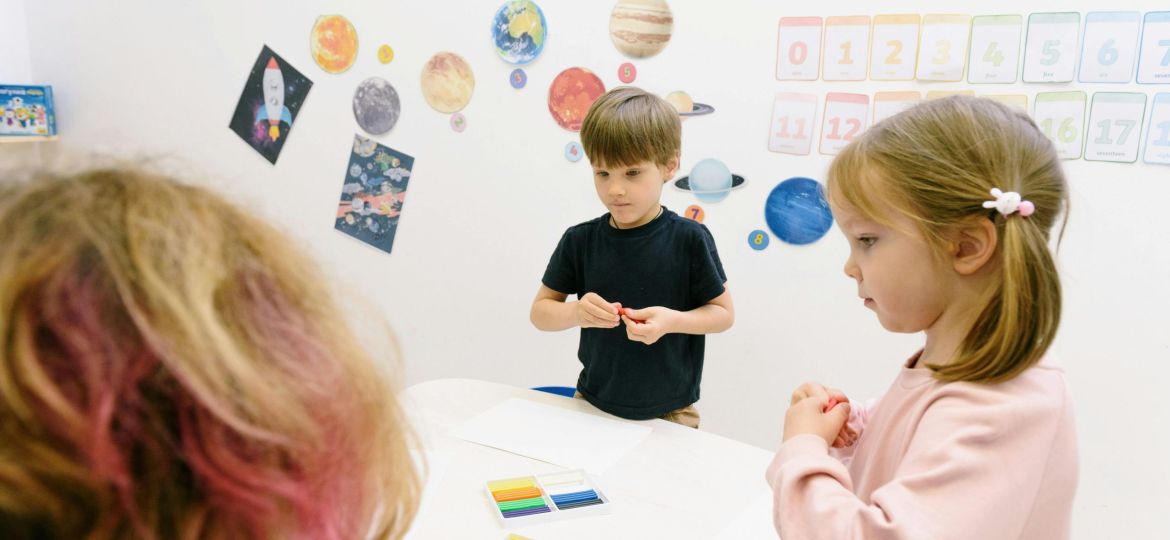
FH Summary: Instilling positive habits in childhood can have a profound impact on a child’s future success and happiness. By modeling good behaviors, providing consistent reinforcement, and creating a supportive environment, parents can help their children develop habits that foster growth and resilience. For more guidance on cultivating beneficial habits in children, visit the First Habits website and sign up for our weekly newsletter.
When we reflect on our childhoods, many of us wish we could go back and alter certain aspects of our upbringing. Whether it’s wishing for more time with family, better educational opportunities, or simply more freedom to explore, the desires are diverse. However, if there’s one thing that stands out universally as a powerful change, it would likely be the habits instilled during those formative years. Habits are the foundation upon which our lives are built. They shape our behaviors, influence our decisions, and ultimately determine our success and happiness.
The Power of Good Habits
Good habits are like seeds planted in fertile soil. With time and nurturing, they grow into strong trees that bear fruit for a lifetime. Developing good habits in childhood sets the stage for an upward spiral in a child’s life. These habits can range from the obvious, such as brushing teeth and eating vegetables, to the more profound, like reading daily and showing kindness to others.
According to James Clear, author of Atomic Habits, “Habits are the compound interest of self-improvement. The same way that money multiplies through compound interest, the effects of your habits multiply as you repeat them.” This compounding effect can be incredibly powerful, particularly when the habits are positive and instilled from a young age.
To better understand how habits function, consider the following foundational concepts:
- Consistency Over Intensity: It’s often not the intensity of the habit that makes the most difference, but rather the consistency with which it is practiced. Small, consistent actions can lead to significant improvements over time.
- Identity-Based Habits: James Clear also emphasizes the importance of identity in habit formation. For instance, instead of focusing on reading more books, encourage your child to see themselves as a reader. This identity-based approach can be more motivating and sustainable as compared to a goal-based approach.
- Cue-Craving-Routine-Reward Loop: Understanding the mechanics of habits is crucial. Every habit consists of a cue, a craving, a routine, and a reward. By identifying and tweaking these elements, parents can help children form and maintain good habits. As compared to wholesale change of a child’s behavior over the course of a week, a habit-based parenting path will lead to far greater positive results.
The Downward Spiral of Bad Habits
On the flip side, bad or unintentional habits can create a negative spiral. These are the habits that are formed without thought or intention, often as a result of environmental influences or a lack of guidance. For instance, a child who develops a habit of procrastination might struggle with time management throughout their life, affecting their academic and professional success.
Dr. Angela Duckworth, a psychologist known for her research on grit and perseverance, emphasizes that “You can not impose grit upon your kids. You need to help them develop habits. But you can’t make them be passionate, and you can’t really make them be persevering, either.”1 Without this guidance, parents are often at a loss for how to instill intangible concepts like passion and perseverance.
Consider the case of Emily, a high school student who struggled with procrastination. Emily would often put off studying until the last minute, leading to poor grades and high stress. Through consistent effort and guidance from her parents, Emily was able to replace this bad habit with a structured study schedule. Over time, her grades improved, and she felt more confident and in control of her learning.
The Role of Parents in Habit Formation
Parents play a crucial role in shaping the habits of their children. From a young age, children look up to their parents and mimic their behaviors. This means that parents have the unique opportunity to model good habits and create an environment that fosters positive behaviors.
Consider the story of Sarah, a mother of two young boys. Sarah made it a habit to read with her children every night before bed. This simple, consistent activity not only improved her children’s reading skills but also instilled a love for books that continues to this day. By modeling this behavior, Sarah was able to pass on a habit that has profoundly impacted her children’s lives.
Another example is the habit of healthy eating. If parents prioritize nutritious meals and involve their children in meal planning and preparation, children are more likely to develop a positive relationship with food. This habit can lead to better physical health, higher energy levels, and improved mood.
Foundational Concepts for Developing Good Habits
Child Development: Understanding the stages of child development is crucial in forming appropriate habits. For example, young children are naturally curious and eager to learn. This is the perfect time to introduce habits related to curiosity and learning, such as asking questions and exploring new topics.
Upward Spiral: Good habits create a positive feedback loop. For instance, a child who develops the habit of setting aside time for homework every day will likely see improvements in their academic performance, leading to greater confidence and motivation to continue the habit.
Elevated Foundations of Childhood Development: The foundation of good habits should be built on core values such as respect, responsibility, and perseverance. These values will guide children as they grow and face new challenges.
Compounding Childhood Habits: Just like compound interest, the benefits of good habits increase over time. A habit that might seem small and insignificant in childhood can have profound effects in adulthood.
High Leverage Childhood Habits: Some habits have a greater impact than others. These high leverage habits include things like breathing, memory, and a growth mindset. By focusing on these habits, parents can set their children up for long-term success.
Practical Tips for Parents
- Start Small: Begin with one habit at a time. Trying to change too many things at once can be overwhelming for both parents and children. For example, if you want your child to develop a habit of reading, start with just 10 minutes a day and gradually increase the time as the habit becomes established.
- Be Consistent: Consistency is key when it comes to habit formation. Make sure to reinforce the habit regularly until it becomes a natural part of the child’s routine. Create a daily schedule that includes time for the habit, whether it’s a morning routine of making the bed or an evening routine of preparing for the next day.
- Use Positive Reinforcement: Encourage and praise your child when they successfully adopt a new habit. Positive reinforcement can motivate children to continue the behavior. For instance, if your child remembers to put away their toys without being asked, acknowledge their effort with praise or a small reward.
- Model the Behavior: Children learn by watching. Make sure to model the habits you want your child to adopt. If you want your child to develop a habit of gratitude, practice it yourself by regularly expressing what you are thankful for and encouraging your child to do the same.
- Create a Supportive Environment: Remove obstacles that might hinder the formation of good habits. For instance, if you want your child to eat more vegetables, make sure to have a variety of vegetables readily available at home. Additionally, involve your child in the process by letting them choose which vegetables to include in meals.
- Set Clear Expectations: Children need to understand what is expected of them. Clearly explain the habit you want them to develop and why it is important. For example, if you want your child to develop a habit of doing their homework immediately after school, explain how this can help them stay organized and reduce stress.
- Be Patient: Habits take time to form. Be patient and understanding if your child struggles or occasionally slips up. Encourage them to keep trying and remind them that forming a new habit is a process.
- Make it Fun: Turn the habit-forming process into a fun activity. For example, if you want your child to develop a habit of physical exercise, find activities they enjoy, such as playing a sport, dancing, or going on nature walks.
Examples of Habit Transformation
Let’s delve into some stories that highlight the transformative power of good habits.
Story 1: The Power of a Morning Routine
Jane, a single mother of three, struggled to get her children ready for school each morning. The chaos and stress were affecting everyone’s mood and performance throughout the day. Jane decided to implement a structured morning routine. She involved her children in creating a checklist of tasks to complete each morning, such as making their beds, brushing their teeth, and packing their backpacks.
With consistency and encouragement, the morning routine became a habit. The children felt more prepared and confident starting their day, and Jane noticed a significant improvement in their overall mood and school performance. This simple habit change had a profound impact on their daily lives.
Story 2: The Impact of Gratitude Journaling
Samantha, a mother of an 8-year-old girl, wanted to help her daughter develop a positive mindset. She introduced the habit of gratitude journaling. Every night before bed, they would write down three things they were grateful for.
Over time, this habit helped Samantha’s daughter focus on the positive aspects of her life, even on challenging days. It improved her emotional resilience and overall happiness. This simple habit became a powerful tool for fostering a positive outlook on life.
Conclusion
If you could change one thing about your childhood, focusing on developing good habits would likely be the most impactful. The habits we form in childhood shape our behaviors, influence our decisions, and ultimately determine our success and happiness. By understanding the importance of habits and taking proactive steps to instill positive ones, parents can create an upward spiral for their children, setting them up for a lifetime of success.
For more information on habits to focus on with your children and how to implement them, check out our other blogs (examples on the power of habits are here, here, and here) and sign up for our weekly newsletter. At First Habits, we are dedicated to providing parents with the tools and resources they need to raise happy, healthy, and successful children.
References:
1 Angela Duckworth interview here.
















